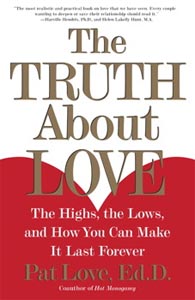 To enjoy the holidays fully, some of us need to give up the blocks and resistance that prevent us from experiencing the magic and possibilities of being fully present and fully able to accept the good that is all around us. Blocks such as anger, resentment and blaming can get in our way. Most people have someone in their life who they feel has treated them wrong. They hurt our feelings, left us in a difficult situation, maybe even betrayed us. Maybe we were treated in a way that we never thought possible, or never thought possible by that particular person. But it happened.
We can never change what happened in the past. Our acceptance of their behavior can put us back in control to make decisions that are best for us. Once we face and accept the truth of what happened, we can stop struggling. We don’t have to let someone else’s poor, neglectful or abusive behavior control our happiness. We can develop healthy boundaries, have healthy friends and avoid toxic people. Let go of people, thoughts and behaviors that don’t serve you.
It’s never OK for someone to hurt someone else. Never. Forgiveness isn’t about saying what happened is OK. Forgiveness is about letting go of the negative hold it has on you.
It’s time to grieve our losses and let go of our blocks to personal freedom. Don’t give your happiness over to someone else.
Once we fully grieve our losses, feel our pain, accept what happened and forgive, we can feel joy and love once again. Let go of blocks that prevent you from living fully and having a good time. It is our responsibility to make our life work and make it work well. Be good to yourself and by being open to the celebrations, joy, warmth and love that you see all around you. Enjoy the holidays! You can choose to make them a great time for you!
To enjoy the holidays fully, some of us need to give up the blocks and resistance that prevent us from experiencing the magic and possibilities of being fully present and fully able to accept the good that is all around us. Blocks such as anger, resentment and blaming can get in our way. Most people have someone in their life who they feel has treated them wrong. They hurt our feelings, left us in a difficult situation, maybe even betrayed us. Maybe we were treated in a way that we never thought possible, or never thought possible by that particular person. But it happened.
We can never change what happened in the past. Our acceptance of their behavior can put us back in control to make decisions that are best for us. Once we face and accept the truth of what happened, we can stop struggling. We don’t have to let someone else’s poor, neglectful or abusive behavior control our happiness. We can develop healthy boundaries, have healthy friends and avoid toxic people. Let go of people, thoughts and behaviors that don’t serve you.
It’s never OK for someone to hurt someone else. Never. Forgiveness isn’t about saying what happened is OK. Forgiveness is about letting go of the negative hold it has on you.
It’s time to grieve our losses and let go of our blocks to personal freedom. Don’t give your happiness over to someone else.
Once we fully grieve our losses, feel our pain, accept what happened and forgive, we can feel joy and love once again. Let go of blocks that prevent you from living fully and having a good time. It is our responsibility to make our life work and make it work well. Be good to yourself and by being open to the celebrations, joy, warmth and love that you see all around you. Enjoy the holidays! You can choose to make them a great time for you!The Holidays and Forgiveness
The holidays are approaching and they are meant to be a time of great joy and love. You can see the beginnings of planning and anticipation wherever you go. Stores and streets are decorated. Commercials have holiday themes and people are making decisions now as to how they are going to celebrate.
 To enjoy the holidays fully, some of us need to give up the blocks and resistance that prevent us from experiencing the magic and possibilities of being fully present and fully able to accept the good that is all around us. Blocks such as anger, resentment and blaming can get in our way. Most people have someone in their life who they feel has treated them wrong. They hurt our feelings, left us in a difficult situation, maybe even betrayed us. Maybe we were treated in a way that we never thought possible, or never thought possible by that particular person. But it happened.
We can never change what happened in the past. Our acceptance of their behavior can put us back in control to make decisions that are best for us. Once we face and accept the truth of what happened, we can stop struggling. We don’t have to let someone else’s poor, neglectful or abusive behavior control our happiness. We can develop healthy boundaries, have healthy friends and avoid toxic people. Let go of people, thoughts and behaviors that don’t serve you.
It’s never OK for someone to hurt someone else. Never. Forgiveness isn’t about saying what happened is OK. Forgiveness is about letting go of the negative hold it has on you.
It’s time to grieve our losses and let go of our blocks to personal freedom. Don’t give your happiness over to someone else.
Once we fully grieve our losses, feel our pain, accept what happened and forgive, we can feel joy and love once again. Let go of blocks that prevent you from living fully and having a good time. It is our responsibility to make our life work and make it work well. Be good to yourself and by being open to the celebrations, joy, warmth and love that you see all around you. Enjoy the holidays! You can choose to make them a great time for you!
To enjoy the holidays fully, some of us need to give up the blocks and resistance that prevent us from experiencing the magic and possibilities of being fully present and fully able to accept the good that is all around us. Blocks such as anger, resentment and blaming can get in our way. Most people have someone in their life who they feel has treated them wrong. They hurt our feelings, left us in a difficult situation, maybe even betrayed us. Maybe we were treated in a way that we never thought possible, or never thought possible by that particular person. But it happened.
We can never change what happened in the past. Our acceptance of their behavior can put us back in control to make decisions that are best for us. Once we face and accept the truth of what happened, we can stop struggling. We don’t have to let someone else’s poor, neglectful or abusive behavior control our happiness. We can develop healthy boundaries, have healthy friends and avoid toxic people. Let go of people, thoughts and behaviors that don’t serve you.
It’s never OK for someone to hurt someone else. Never. Forgiveness isn’t about saying what happened is OK. Forgiveness is about letting go of the negative hold it has on you.
It’s time to grieve our losses and let go of our blocks to personal freedom. Don’t give your happiness over to someone else.
Once we fully grieve our losses, feel our pain, accept what happened and forgive, we can feel joy and love once again. Let go of blocks that prevent you from living fully and having a good time. It is our responsibility to make our life work and make it work well. Be good to yourself and by being open to the celebrations, joy, warmth and love that you see all around you. Enjoy the holidays! You can choose to make them a great time for you!
 To enjoy the holidays fully, some of us need to give up the blocks and resistance that prevent us from experiencing the magic and possibilities of being fully present and fully able to accept the good that is all around us. Blocks such as anger, resentment and blaming can get in our way. Most people have someone in their life who they feel has treated them wrong. They hurt our feelings, left us in a difficult situation, maybe even betrayed us. Maybe we were treated in a way that we never thought possible, or never thought possible by that particular person. But it happened.
We can never change what happened in the past. Our acceptance of their behavior can put us back in control to make decisions that are best for us. Once we face and accept the truth of what happened, we can stop struggling. We don’t have to let someone else’s poor, neglectful or abusive behavior control our happiness. We can develop healthy boundaries, have healthy friends and avoid toxic people. Let go of people, thoughts and behaviors that don’t serve you.
It’s never OK for someone to hurt someone else. Never. Forgiveness isn’t about saying what happened is OK. Forgiveness is about letting go of the negative hold it has on you.
It’s time to grieve our losses and let go of our blocks to personal freedom. Don’t give your happiness over to someone else.
Once we fully grieve our losses, feel our pain, accept what happened and forgive, we can feel joy and love once again. Let go of blocks that prevent you from living fully and having a good time. It is our responsibility to make our life work and make it work well. Be good to yourself and by being open to the celebrations, joy, warmth and love that you see all around you. Enjoy the holidays! You can choose to make them a great time for you!
To enjoy the holidays fully, some of us need to give up the blocks and resistance that prevent us from experiencing the magic and possibilities of being fully present and fully able to accept the good that is all around us. Blocks such as anger, resentment and blaming can get in our way. Most people have someone in their life who they feel has treated them wrong. They hurt our feelings, left us in a difficult situation, maybe even betrayed us. Maybe we were treated in a way that we never thought possible, or never thought possible by that particular person. But it happened.
We can never change what happened in the past. Our acceptance of their behavior can put us back in control to make decisions that are best for us. Once we face and accept the truth of what happened, we can stop struggling. We don’t have to let someone else’s poor, neglectful or abusive behavior control our happiness. We can develop healthy boundaries, have healthy friends and avoid toxic people. Let go of people, thoughts and behaviors that don’t serve you.
It’s never OK for someone to hurt someone else. Never. Forgiveness isn’t about saying what happened is OK. Forgiveness is about letting go of the negative hold it has on you.
It’s time to grieve our losses and let go of our blocks to personal freedom. Don’t give your happiness over to someone else.
Once we fully grieve our losses, feel our pain, accept what happened and forgive, we can feel joy and love once again. Let go of blocks that prevent you from living fully and having a good time. It is our responsibility to make our life work and make it work well. Be good to yourself and by being open to the celebrations, joy, warmth and love that you see all around you. Enjoy the holidays! You can choose to make them a great time for you!
 It’s a “communication issue” or “a failure to set boundaries.” Maybe you’ve thought your partner has a bad temper or a problem with anger management. Perhaps you think that you are doing something wrong or that there is something wrong with you. In our society, we aren’t very good at talking about abuse, so women are often left wondering.
A common myth is that abuse means only physical abuse. But, actually, there are many different types of abuse, including emotional, psychological, financial, and sexual abuse. These can be just as damaging as physical abuse. For example, abusive partners can attempt to isolate you or cut you off from sources of support, use sarcasm or threats to put you down, change moods to intimidate you, express jealousy, and become emotionally distant.
They can also refuse to allow you to practice your faith, devalue your knowledge or education, control the finances, or threaten to have an affair if you don’t do what they ask. These and many other examples are not generally thought of as abuse. You may know there is something “wrong” but may not label it as abuse. Here’s a list of seven things that abusive partners often do in their relationships. Ask yourself if your partner does any of these things:
It’s a “communication issue” or “a failure to set boundaries.” Maybe you’ve thought your partner has a bad temper or a problem with anger management. Perhaps you think that you are doing something wrong or that there is something wrong with you. In our society, we aren’t very good at talking about abuse, so women are often left wondering.
A common myth is that abuse means only physical abuse. But, actually, there are many different types of abuse, including emotional, psychological, financial, and sexual abuse. These can be just as damaging as physical abuse. For example, abusive partners can attempt to isolate you or cut you off from sources of support, use sarcasm or threats to put you down, change moods to intimidate you, express jealousy, and become emotionally distant.
They can also refuse to allow you to practice your faith, devalue your knowledge or education, control the finances, or threaten to have an affair if you don’t do what they ask. These and many other examples are not generally thought of as abuse. You may know there is something “wrong” but may not label it as abuse. Here’s a list of seven things that abusive partners often do in their relationships. Ask yourself if your partner does any of these things:
 They prevent us from being in harmony with the world. Resentments are hardened chunks of anger. They loosen up and dissolve with forgiveness and letting go.
Letting go of resentments does not mean we allow the other person to do anything to us that he or she wants. It means we accept what happened in the past, and we set boundaries for the future. We can let go of resentments and still have boundaries.
Try to see the good in the person, or the good that ultimately evolved from whatever incident you feel resentful about. Try to see your part. Get clarity on what your boundaries are and be willing to speak up and state your boundaries with others. (teach people how to treat you). Then put the incident to rest.
They prevent us from being in harmony with the world. Resentments are hardened chunks of anger. They loosen up and dissolve with forgiveness and letting go.
Letting go of resentments does not mean we allow the other person to do anything to us that he or she wants. It means we accept what happened in the past, and we set boundaries for the future. We can let go of resentments and still have boundaries.
Try to see the good in the person, or the good that ultimately evolved from whatever incident you feel resentful about. Try to see your part. Get clarity on what your boundaries are and be willing to speak up and state your boundaries with others. (teach people how to treat you). Then put the incident to rest. This past weekend also marked the much anticipated release of a movie based on the E.L. James bestseller, 50 Shades of Grey. 50 Shades of Grey is a erotic romance novel where a business exec who is into BDSM develops a relationship with a college student. The novel tells the story of their sexual romance in explicit detail showing the arousal achieved by pain, bondage, and other S&M practices.
This novel and movie portray intimacy and love mixed with untraditional practices that connect love with pain, control, power and submission.
Bestselling author and international speaker on relationships, Gary Thomas, sheds some light on the portrayal of love and intimacy in heterosexual relationships as depicted in 50 Shades of Grey. Here are some of the problems (paraphrased) he sees with “Grey”. Whether you’ve seen the movie or read the book, you can reflect on these comments to confirm your own ideas on love and sex and what you think is healthy and fulfilling in relationships.
This past weekend also marked the much anticipated release of a movie based on the E.L. James bestseller, 50 Shades of Grey. 50 Shades of Grey is a erotic romance novel where a business exec who is into BDSM develops a relationship with a college student. The novel tells the story of their sexual romance in explicit detail showing the arousal achieved by pain, bondage, and other S&M practices.
This novel and movie portray intimacy and love mixed with untraditional practices that connect love with pain, control, power and submission.
Bestselling author and international speaker on relationships, Gary Thomas, sheds some light on the portrayal of love and intimacy in heterosexual relationships as depicted in 50 Shades of Grey. Here are some of the problems (paraphrased) he sees with “Grey”. Whether you’ve seen the movie or read the book, you can reflect on these comments to confirm your own ideas on love and sex and what you think is healthy and fulfilling in relationships.
 most frequently for one or more of the following: better communication, more trust, more emotional intimacy or more sexual intimacy.
Often, one partner wants the other to have more empathy, compassion and a better understanding of their perspective. Sometimes people don’t feel safe asking for what they need or want in the relationship. Sometimes people ask for what they want but never seem to get it. Whatever the reason, couples often reach an impasse, unable to get the empathy and understanding they need from each other by themselves.
Statistics today identify the four predictors of divorce to be:
Criticism, Defensiveness, Withdrawal, and Contempt
By eliminating these adverse coping skills and replacing them with loving and effective skills and techniques, relationships improve. Trust, communication and a loving connection can be restored and re-established.
most frequently for one or more of the following: better communication, more trust, more emotional intimacy or more sexual intimacy.
Often, one partner wants the other to have more empathy, compassion and a better understanding of their perspective. Sometimes people don’t feel safe asking for what they need or want in the relationship. Sometimes people ask for what they want but never seem to get it. Whatever the reason, couples often reach an impasse, unable to get the empathy and understanding they need from each other by themselves.
Statistics today identify the four predictors of divorce to be:
Criticism, Defensiveness, Withdrawal, and Contempt
By eliminating these adverse coping skills and replacing them with loving and effective skills and techniques, relationships improve. Trust, communication and a loving connection can be restored and re-established.
 support and direction to help couples develop what they need to make a break-through rather than a break up. Most therapy is short term. I teach effective skills that you can use at home. The goal of therapy is to make changes so the couple will have
support and direction to help couples develop what they need to make a break-through rather than a break up. Most therapy is short term. I teach effective skills that you can use at home. The goal of therapy is to make changes so the couple will have  about relationships. I have turned these into the following TRUTHS about relationships as a guide for evaluating yours.
about relationships. I have turned these into the following TRUTHS about relationships as a guide for evaluating yours.